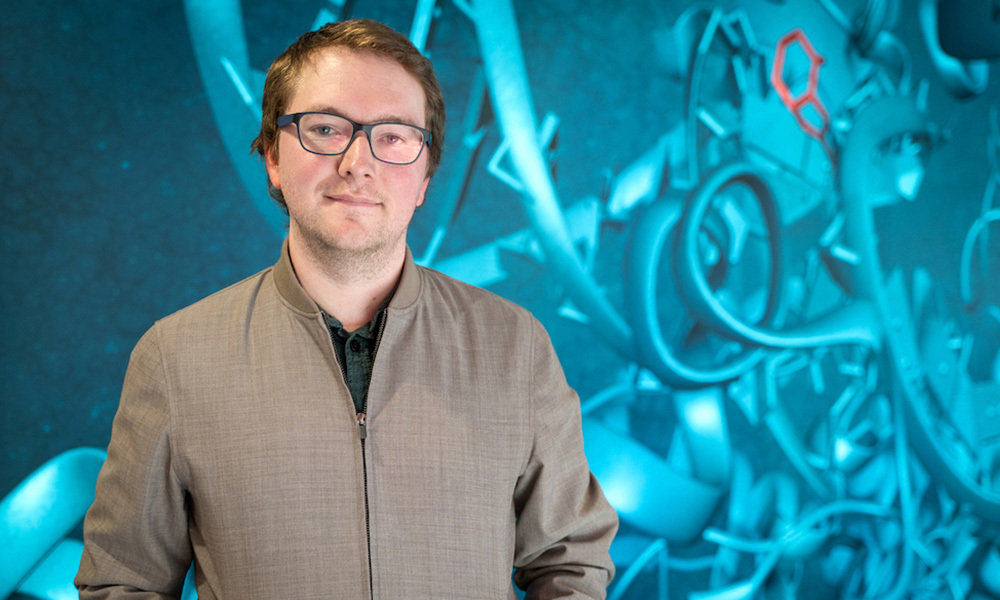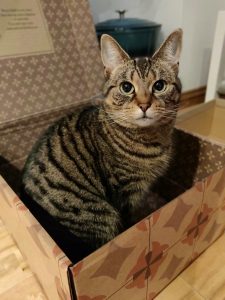
Welcome: John Lees
John Lees joins EMBL-EBI as a Group Leader in Pathogen informatics and modelling

Epidemiology and genomics data are powerful tools that help us understand the spread of pathogens and disease. New computational and modelling techniques are advancing this field, allowing us to broaden our knowledge of and delve deeper into disease transmission. Find out how our newest Group Leader in Pathogen informatics and modelling, John Lees, and his group hope to advance this quickly evolving field.
What does your role entail?
Firstly, I will continue my research in genomic epidemiology and the spread of pathogens. My work is particularly focused on analysing epidemiology data very quickly to try and get ahead of a disease. I’m also starting some computational modelling work. This will involve integrating genomic and epidemiological data and analysing them using new statistical and computational techniques. I’m hoping this work will benefit researchers from different backgrounds, for example, public health researchers and clinicians. Some of the tools we’re hoping to use this approach to develop will make pathogen data analysis faster and easier to use for non-bioinformaticians.
I’m also planning to use graphics cards to develop modelling and bioinformatic algorithms for my research, which will have the potential to run a lot faster and in a more energy-efficient manner. This is a fairly new approach in this field.
What motivated you to work at EMBL-EBI?
The fact that EMBL-EBI is the home of big data and has excellent computational resources was a big draw. There’s also a really nice overlap between my work and some of the other groups here, so I’m excited about the potential for new collaborations.
Moving to EMBL-EBI felt like a natural fit for me. All the data resources managed by EMBL-EBI are great and the leadership in making data open access is fantastic. I’m very committed to ensuring the code and software created from my group are open source.
What is your professional background?
I initially studied physics and then transitioned to biology for my PhD, which I did at the Wellcome Sanger Institute. My PhD combined pathogen and human data to look at the spread of bacterial meningitis, among other things. I worked under the supervision of Stephen Bentley, Julian Parkhill, and Jeff Barett.
After this, I did a postdoc at NYU because I had the opportunity to work with Jeff Weiser who does fantastic work in the fields of microbiology and immunology. Living in New York was a great experience. During my time there, I performed some bioinformatics and modelling analysis for a handful of projects and worked on understanding the genetic basis of transmissibility.
Next, I began a fellowship at Imperial College London where I worked with Nick Croucher. This role gave me the opportunity to scale up a lot of the analysis I’d been doing, looking at the biology of bacterial transmission using computational approaches. This fellowship also took place during the start of the COVID-19 pandemic, so I spent about half of my time helping develop tools to model the spread of SARS-CoV-2 in England.
What are some of the challenges in your new job?
I’m used to spending a significant amount of my time doing my own coding but, in this new role, it will be more important to train others in the skills I’ve learned. Maintaining all the collaborations and partnerships I’ve built up over the years in different institutions will be challenging but important.
What is your approach as a manager?
It depends on the person. Some people prefer to be more independent and others prefer a little more guidance. I try to work out in the first year which approach works best. I also try to transition people to independence by the end of their PhD. I always try to give people their own research area which they can take away with them and build on if they choose to.
What is one thing we couldn’t find out about you from an online search?
I used to do a radio show when I was a PhD student! In terms of my interests, I like electronic music, and I try to go to a lot of gigs and festivals. Since the lockdown, I’ve also become a bit of a coffee snob. I enjoy cooking, gardening, and I have a tabby cat called Martha. We moved house recently and it’s been nice to have her around and watch what she’s up to when you can’t face looking at another pile of boxes.



